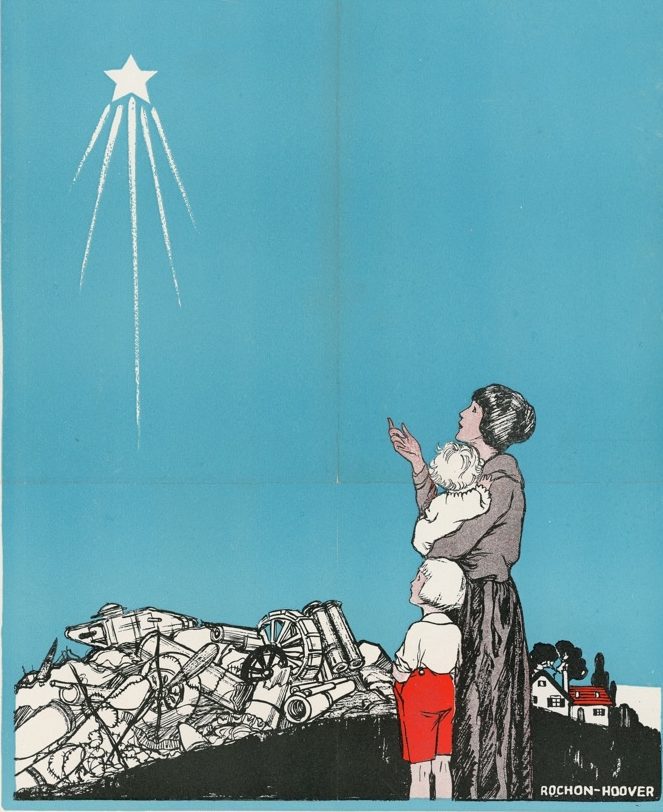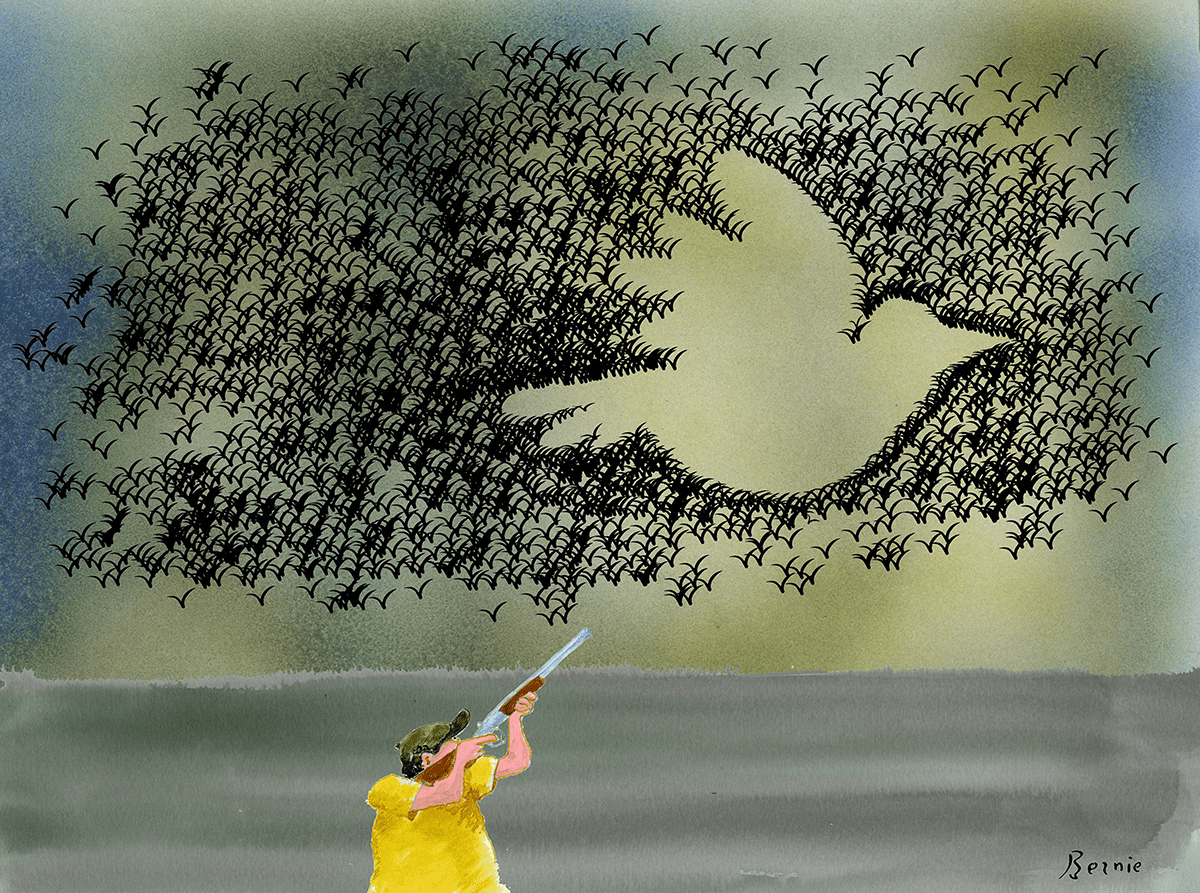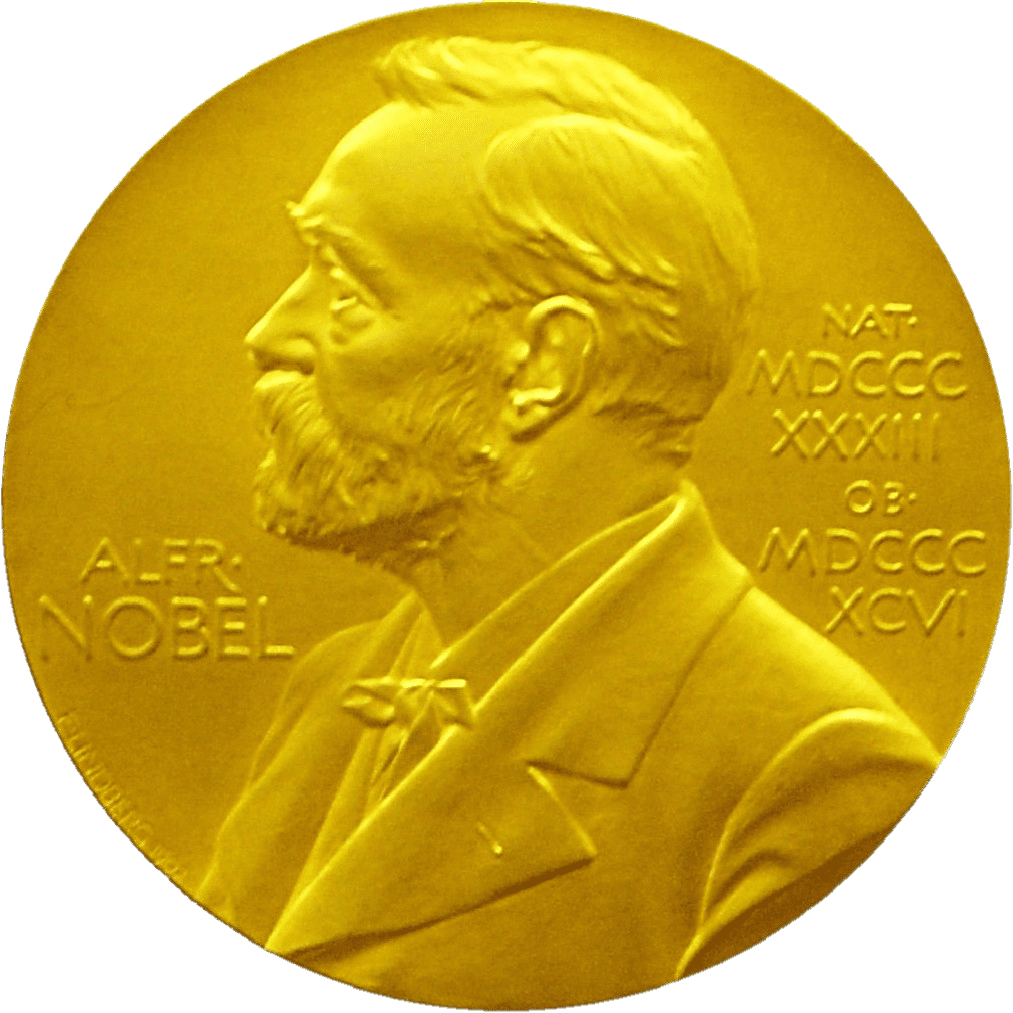As we near the end of 2016, we are offering a toast for the new year, through excerpts from authors worked for peace and social justice in the early twentieth century, broadly around the time of the founding of the World Peace Foundation (1910). Their work is not necessarily a blueprint for ours today, not only in how the problems were defined but also in its membership and the articulation of solutions. For instance, the international peace movement was dominated by voices of people of European descent, whether resident in Europe or North America, a limitation in its imagination and scope. Nonetheless, their eloquence, even as they struggled for a cause that at times seemed hopeless, remind us that we are part of larger community historically and today committed to building more just and less violent world.
Below are excerpts from speeches given by women members of the international peace movement in the early 20th century.
Jane Addams
Pacifism and Patriotism in Wartime, 1917
“With visions of international justice filling our minds, pacifists are always a little startled when those who insist that justice can only be established by war, accurse us of caring for peace irrespective of justice. Many of the pacifists… have long striven for social and political justice with a fervor perhaps equal to that employed by the advocates of force, and we realize that a sense of justice has become the keynote to the best political and social activity in this generation. Although this ruling passion for juster relations between man and man, group and group, or between nation and nation, is not without its sterner aspects, among those who dream of a wider social justice throughout the world there had developed a conviction that justice between men or between nations can be achieved only through understanding and fellowship, and that a finely tempered sense of justice, which alone is of any service in modern civilization, cannot be secured in the storm and stress of war. This is not only because war inevitably arouses the more primitive antagonisms, but because the spirit of fighting burns away all those impulses, certainly towards the enemy, which foster the will to justice…
With such a creed, can the pacifists of today be accused of selfishness when they urge upon the United States not isolation, not indifference to moral issues and that the fate of liberty and democracy, but a strenuous endeavor to lead all nations of the earth into an organized international life worthy of civilized men?”
Open Forum on Cures of War
“Report of the Conference on the Cause and Cure of War” held in Washington, DC, January 18-24, 1925.
Excerpts from comments by Miss Rankin, Association of University Women
“We have a human institution called war that has been used for many generations for one or two purposes—one, to settle international disputes, and then it has also been used to make people feel a certain national security… It is the consensus of opinion today that war does not settle international disputes, and that we have no security in armaments. I think no one is deceived in thinking that we have security in war.
Those who are interested in the outlawry of war are not interested in it as a panacea, but as a supplement to all other means of obtaining peaceful settlement of disputes, and we all know that there is going to be no one way out, but we must put war outside the sanction of law. We have built up this human institution and we can tear it down much more quickly than we have built it up. By the nation saying that we have come to the conclusion that this human institution is futile and stupid, and therefore we will not sanction it legally, then we can proceed unhampered toward organization to take care of the problems that confront us as a nation in our international relations.
As long as war is the legal method of settling international disputes, it will at some time be used for that purpose. As long as any organization exists in which war is the final arbitrator, war is going to be used. If we as a people take the moral stand that we are going to build other human institutions for settling disputes, that we will not use war; that we recognize war as a crime, as the greatest crime against humanity, we can arouse the spiritual power of the nation… If it is wrong for individuals to lie, and to steal and murder, it is certainly wrong for that group of individuals which is a nation…. As long as war is the law of the land, we have a certain amount of the sentiment of the people standing by the law… We know that the psychology of having war the legal law of the nations prevents us from developing the intelligence and the ingenuity and the imagination to work out another way, and we in America, who are secure, should take the moral stand that we will find another way out.”
Conference on the Cause and Cure of War
Women’s Organizations as a Contribution to International Understanding
Excerpts from Address by Rev. Anna Garlin Spencer
In “Report of the Conference on the Cause and Cure of War” held in Washington, DC, January 18-24, 1925.
“It was in 1871 that Julia Ward Howe went to Europe, fresh from the experiences of the after-war period connected with our Civil War in this country, vividly sympathizing with the women of Europe of the after-war experiences that they were passing through at that time. And what did she find in the way of women’s organizations upon which she could build? She found little “Olive Leaf Circles” – you can tell by the name how old it was—little Olive Leaf Circles of women in London, in Edinburgh, in Wales, in Rome… little Olive Leaf Circles. Who planted them? Elihu Burrit, an American missionary of peace… He went abroad and formed a Universal Brotherhood of Man—a very big name, but only a few people in it. The Olive Leaf Circles were the “ladies auxiliaries” of this Brotherhood of Man…
So we have gone on. Now the organizations of women which have been devised for other purposes have joined in this Conference to make vocal and commanding the idea of world peace… But remember, women who sit here, that it is absolutely true in every moral reform that first you have a very few morally adventurous spirits that step off from the beaten track; they take their wavering and uncertain way into the untrod wilderneses of prejudice and suspicion and injustice, and it has been so with the peace movement as women have understood it. We have this great multitude of peace societies all feeling for something they hardly know what, but knowing that their end is the same. The reason we have them is because the will to peace is universally born today…
Emerson did say, you know, that it was a very narrow step between the social reformer and the social scold. It is a narrow step, and some people take it with great ease and live on both sides at once. And it is true of our peace movement, for it is our peace movement, and as a grandmother in the peace cause I welcome this new Conference; I have a right to do it…
I will tell you the kind of peace person I am; if there is an emergency call, while the battle rages, for somebody to go to the front trench and go over the top in the struggle to preserve so much as the symbol of the ideal of peace, I would answer… And again, when the battle is over and its lesson has been learned by all, and it is understood that unless we end war, war will end our civilization, let the wise and the good, and those who carry with them the great institutions of society to balance them and to weight them as well, come together to confer upon the next step; and, if they will let me do it, I will take the smallest little flag and tag behind them in the rear and go with them into the palace of peace….
The aftermath of this World War has left a disturbed, hostile and psychopathic state that makes one person distrust another; when both are equally devoted to the best things they conceive, I know that this is inevitable, but I am also sure that convalescence has set in. I am also sure that those who are under ban for the same sacred cause in which this assembly is brought together… will some time, with those present, come to realize that we are all, in this cause, members one of another. I do not alone look back; I look forward.”



